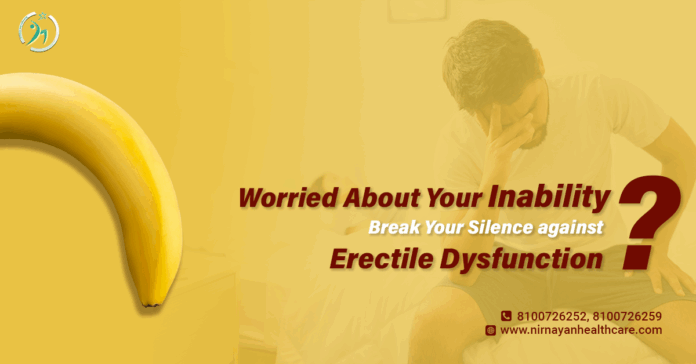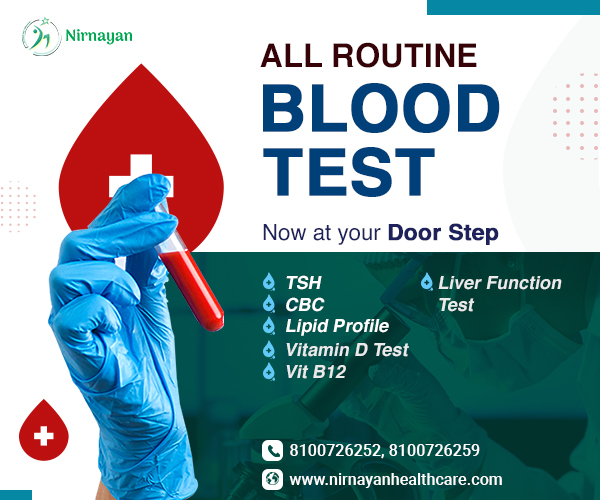In these present days, people are affected by many sexual diseases or disorders with no age limit. Erectile dysfunction (ED) is a common health concern in men that can happen due to several causes. You should understand what can harm your sexual health and how you can cope with these. It becomes a major issue with rapidly growing concern in young men as well. Experiencing Erectile dysfunction not only damages your physical health, but it also affects your sexual life along your relationships. Treatment options are available to reduce its risks. Breaking any social stigma and contacting with healthcare provider for treatment can help you from getting out of ED. Let’s discuss it in this blog.
Erectile Dysfunction (ED):
Erectile dysfunction in men is a sexual disease or problem where your male sex organ is not able to become erect enough during sexual activities. 35% of males are suffering from ED silently. An erection happens when sexual arousal sends signals from the brain, increasing blood flow to the penis. Experiencing ED in men occasionally doesn’t mean it’s a disease or problem. If it stays for a long duration or you are unable to do sexual intercourse continuously, you need medical advice.
Insufficient blood flow in the male sex organ may cause erectile dysfunction; however, it’s an issue that affects sexual health as well as relationships and also causes difficulties in conceiving.
Causes of Erectile Dysfunction (ED):
ED may have some serious causes that can be divided into three main divisions: Physical, psychological, and lifestyle factors that affect your sexual intercourse.
Physical Causes of Erectile Dysfunction in Men:
Many physical causes can trigger ED badly.
- Heart Disease: Atherosclerosis and coronary artery disease can restrict blood flow, which can increase the chances of erectile dysfunction in heart patients.
- High blood pressure or hypertension: Hypertension can damage arteries that may limit the blood flow throughout the body, including the penis.
- Injury or surgery: Any sudden injury or any surgery in the pelvic, prostate area may damage the nerves and can cause ED.
- Type 2 diabetes: High levels of diabetes can damage nerves and blood vessels, which may higher ED risks in men.
- Hormonal deficiencies: Hormone deficiencies, like a low level of testosterone, can reduce sexual urges and erection dysfunction.
- Neurological diseases: Neurological diseases like Parkinson’s disease, Multiple sclerosis, or injuries to the spinal cord can damage nervous function and may cause low erection.
Psychological Factors:
Not only, diseases or disorders increase the risks of ED, but a person also gets ED with some mental health disorders.
Stress: Stress can reduce sex desires, also badly interfere with sexual intercourse and disrupt normal flow.
Anxiety & Depression: Anxiety and depression are both emotional challenges which interrupt normal brain mechanisms. It reduces sexual urges and also damages blood flow with low blood circulation, and ED may occur.
Complexity in relationships: In some cases, family complexity or relationship challenges make you more irritated and lower your interest in performing proper sexual intercourse.
Lifestyle Challenges:
Uncontrolled alcohol consumption: Excess alcohol intake damages your nerve performance and lowers nervous system response, which triggers ED in men.
Obesity: Unhealthy diet and poor lifestyle may increase your obesity along with wrong food choices, which easily reduce your sexual urges, and create difficulties in erection during sexual intercourse.
Uncontrolled masturbation: Excessive masturbation can cause desensitisation, which causes men’s erectile dysfunction, and also makes it harder to achieve a natural erection.
Symptoms of Men’s Erectile Dysfunction:
The primary symptoms of ED include,
- Inability to erect
- Hold an erection for sexual intercourse
- Losing sexual desire
- Anxiety over sexual performance
If you are experiencing those symptoms repeatedly or for a long time, it could indicate erectile dysfunction.
Medical Procedures for diagnosing:
To diagnose ED with the proper procedure, you need to go through some steps:
Past Medical History: To detect underlying causes and risk factors of ED, search for the past medical history, and select the exact factor that triggers ED.
Laboratory tests: Blood tests to evaluate hormones, cholesterol, blood sugar levels, and thyroid function.
Imaging: Ultrasound to examine blood flow within the penis.
Treatment of erectile dysfunction ED:
There are several processes for the treatment of erectile dysfunction you may get, as recommended by your doctor, because it depends on the reasons for which ED happens.
Medication: As suggested by your medical professionals, you need to take some oral medications which help in reducing men’s erectile dysfunction. The purpose of the medications is:
- Normalise your blood flow
- Boost your nervous system
- Improve your testosterone level if you have low testosterone.
- Managing diabetes, high blood pressure, or high cholesterol.
Shock therapy: Some major doctors may focus on Low-Intensity Shockwave Therapy that helps in improving blood flow and also produces new blood vessels with new growth.
Therapeutic Support: Cognitive-behavioural therapy (CBT) can be effective in managing stress and anxiety, boosting confidence and enhancing sexual performance.
Penile Implants: It can be considered in some cases for reducing ED.
Penile Injections: In some serious cases, injections can be used directly to induce an erection.
Other remedies for managing ED:
Among all these, the good news is that erectile dysfunction can be managed with the right diagnosis to determine causes and find the best way to treat it early. Your medical professionals may help you with medications and therapies, which ensure your recovery in most cases.
Apart from these, some preventive steps you can take as daily practices, from diet to habits, that also boost your recovery from ED.
Accept a balanced diet:
Incorporate your diet chart with green veggies, good protein, minerals, and vitamins. Add some fruits and nuts to increase your metabolism. Focus on a diabetes-free diet for controlling your blood sugar level and giving relief from men’s erectile dysfunction issues.
Say NO to alcohol & smoking:
Try to avoid bad habits like alcohol consumption, smoking and many more that affect your nervous system and trigger ED actively.
Regular exercise for healthy blood circulation:
Regular physical activity enhances blood flow, alleviates stress, and helps increase testosterone levels.
Ensure good sleep & manage your stress:
Practices like meditation, deep breathing, and yoga can reduce stress, while a regular sleep schedule boosts restorative rest, improving sexual performance
When to seek a doctor:
If you are experiencing ED symptoms for more than three months and it doesn’t go away, or rather, the condition worsens, you need to contact your doctor. Ignoring ED can lead to serious concerns that affect your health as well as your mental wellbeing and your relationship.
Contact Nirnayan Pathology Lab for any imaging tests, screening tests or routine blood tests in Kolkata.
Conclusion:
Erectile dysfunction is a health condition with physical, psychological and lifestyle factors, but then can be treated and managed with proper treatment plans. Break your shyness, and speak out about your ED problem and get cured. There is no place for embarrassment; it’s a health disorder, and it needs treatment.




